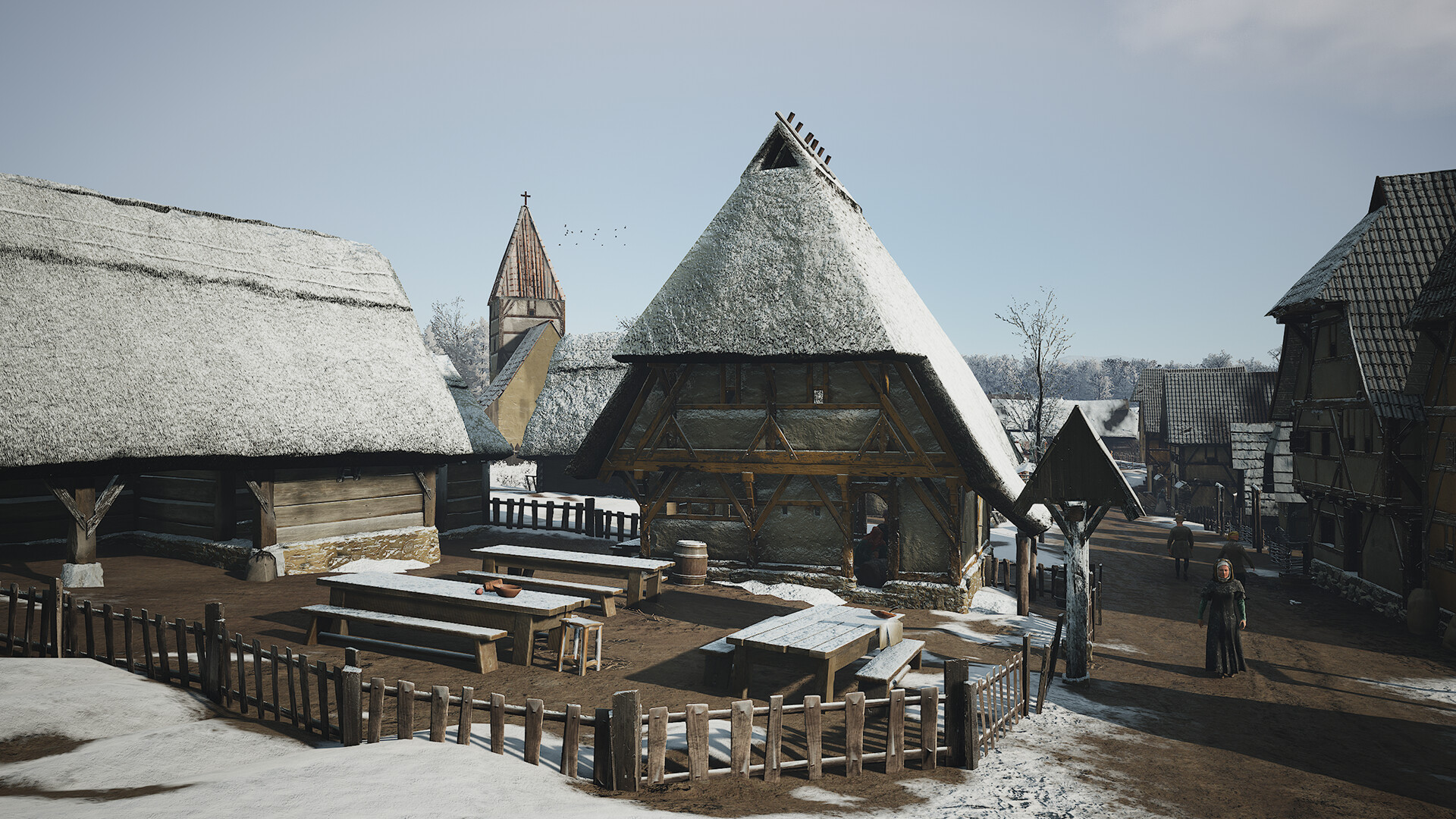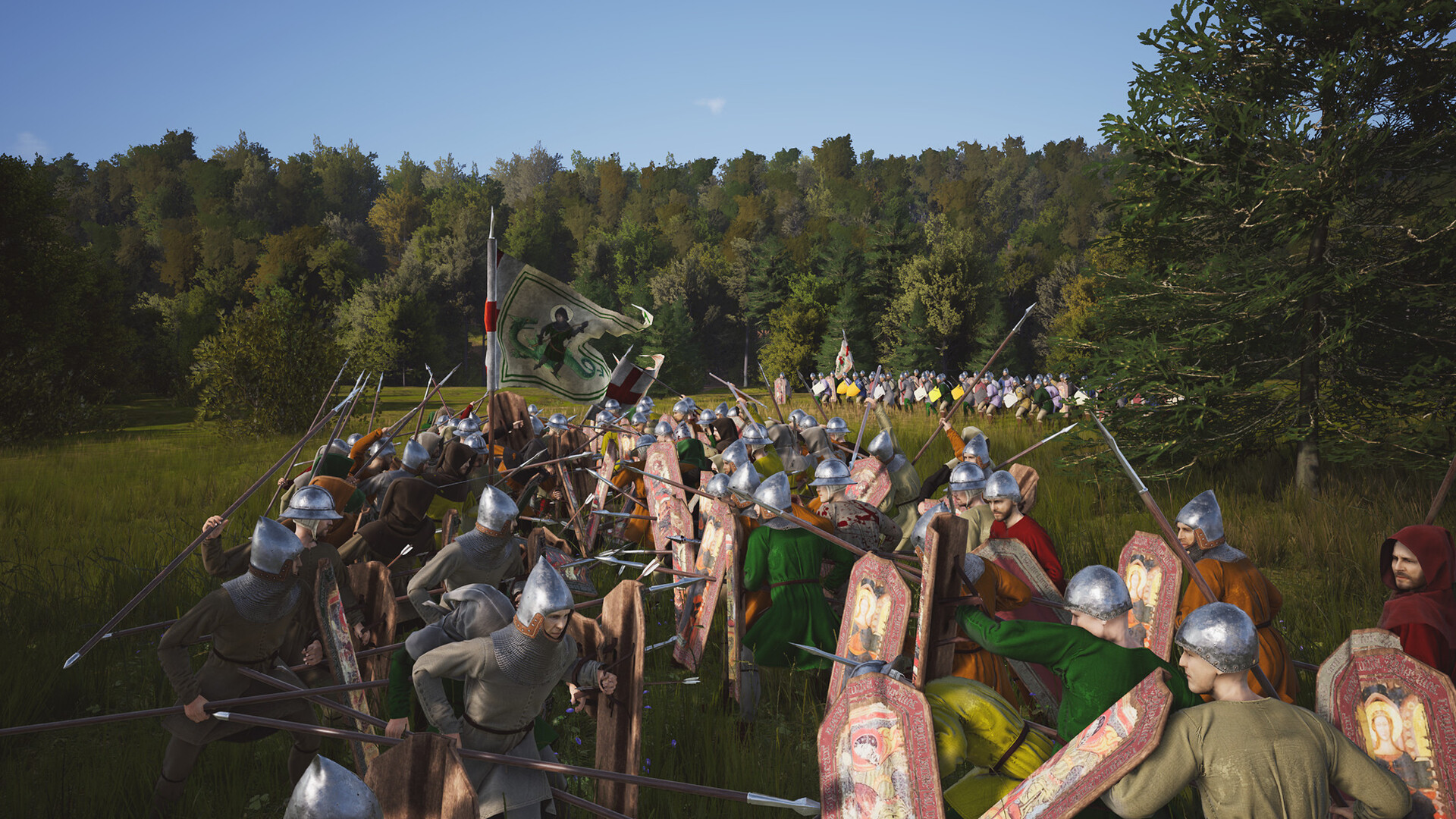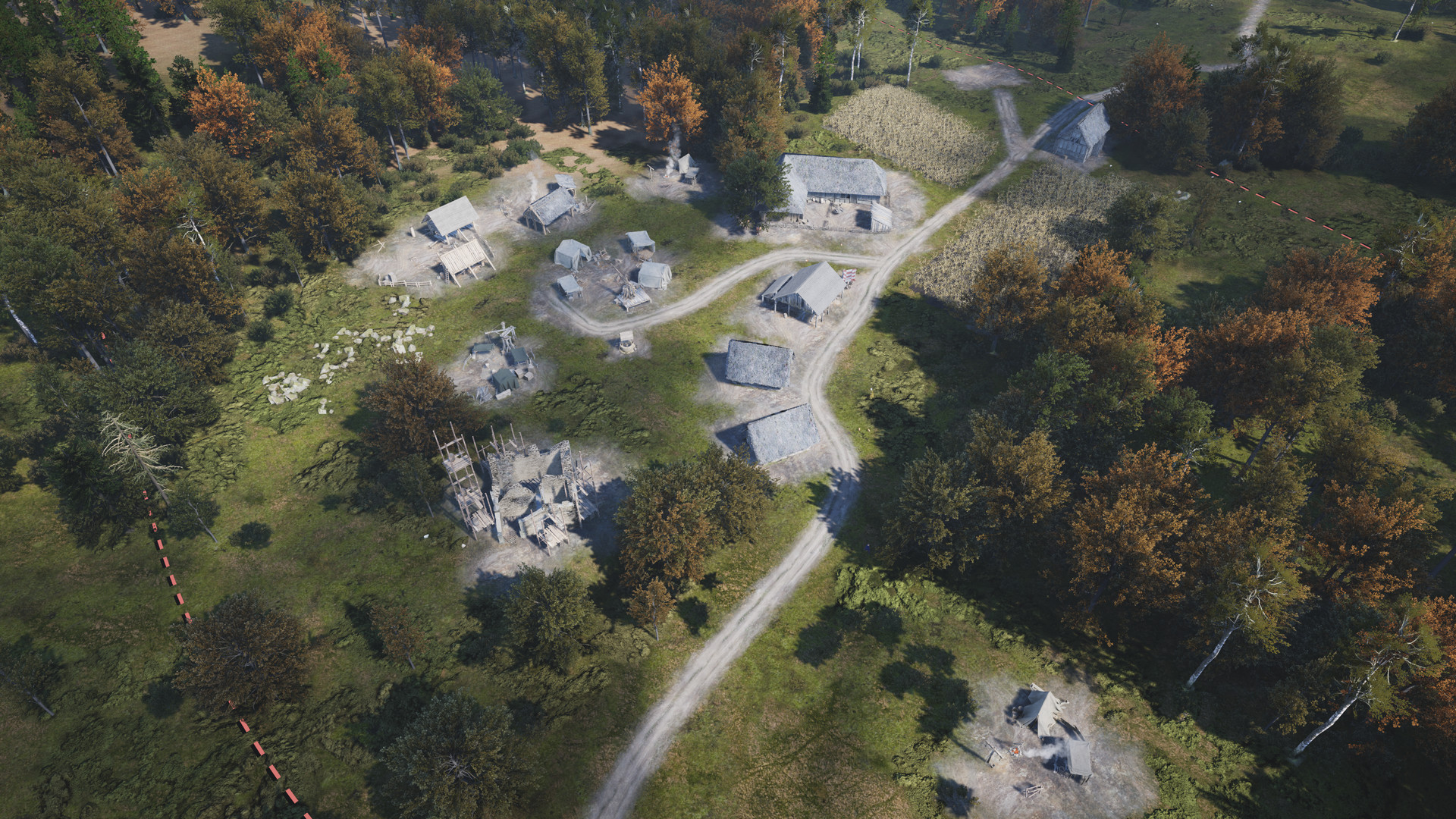How did Manor Lords become so successful? It’s no slight against developer Greg ‘Slavic Magic’ Styczeń to say there are a lot of medieval games, a lot of city building games, a lot of strategy games – a lot of medieval city building strategy games. Just look at Bellwright, which launched three days before Manor Lords, and has many of the same conceits. Speaking exclusively to PCGamesN, Tim Bender, CEO of publisher Manor Lords’ publisher Hooded Horse, reveals how Steam’s most-wanted game came to be, and how wishlist numbers, no matter how dramatic, can possibly be misleading.
On Thursday April 25, just before Manor Lords finally went live, Hooded Horse was bustling with activity. Everybody had a job to do. The press team was responding to thousands of emails. The staff handling outreach to content creators were processing code requests, some legitimate, some less so.
Tim Bender, who co-founded Hooded Horse with his wife, Snow Rui, was on Discord answering questions from players. A week earlier, Styczeń had published a lengthy blog post explaining what Manor Lords was, and what the city building game definitely was not. It was characteristic of Hooded Horse’s approach to publishing – don’t embellish, don’t obfuscate, and let the truth of the game speak for itself.
“We weren’t worried about the hype,” Bender explains. “The way that we market games – and the only way that the developer [Styczeń] wanted the game to be marketed – was to not use any clever tactics to build what we would call ‘hype.’ Our approach is just about exposing more people to what the game is. It’s focused on getting out information, screenshots, and videos, and getting people actually playing the game. It’s a very protective type of marketing. The more people see it, the more prepared they are for what it actually is.”

When Hooded Horse signed Manor Lords, the strategy game already had 500,000 wishlists on Steam. Bender knew Styczeń personally – they’d met and talked before, and the CEO says they shared a common vision for how to promote, launch, and make the game a hit. “It would have been a huge success with or without us,” Bender says. “But we could help him make it an even bigger success.”
Communication was key. Neither Hooded Horse nor Styczeń wanted to make flashy CG trailers, or attempt to portray Manor Lords as something that it wasn’t. Just like Styczeń’s April 17 blog post, which considerately explained that the game was “not a Total War competitor… not an empire management-style grand strategy game… and not an RPG, either,” Bender believed that transparency and honesty – ‘here’s what we’re making, here are gameplay videos and streams so you can see it in action for yourself’ – would make Manor Lords successful.

It was a kind of anti-marketing. Imagine a toothpaste ad that says ‘yeah, nine out of ten dentists agree this gets rid of plaque, but this one guy thinks it’s garbage, so decide for yourself.’ Even when Hooded Horse had to hold something back from the Manor Lords community, the publisher was clear about why.
“Before launch, a lot of people were asking about the price,” Bender explains, “and I just replied with the boring, complex truth. See, if we sell a game in a country with lower wages, we usually give 50% off. But if we posted and shared the price for US dollars, everything else – all that information – would get lost, and people would be thinking that they couldn’t afford the game in their country.
“We also wanted to make it harder for the various gray market, questionable key resellers to put up pre-orders for the game. They didn’t have any keys. We didn’t want to help them, and help them sell their pre-orders which, quite frankly, weren’t real. Revealing the price would help them because they could structure their listings around it. We actually saw a lot of resellers shut down their listings after we said we wouldn’t reveal the dollar price.
“You might have expected that refusing to reveal that price would get people frustrated,” Bender continues. “But that post got like 4,000 upvotes on Reddit. It shows what the community can be like when they’re talked to with the truth. We just told them ‘here’s what we’re doing.’ I think the more you’re open with the community, the more they will respond positively. But if you try to be closed off, the less they will trust you.”

Bender wants to take a similar approach with developers. Manor Lords is a huge hit, but the CEO says it’s not the big games that define Hooded Horse’s profile. Again, the idea is to be open and clear. In the same way that a game’s community might respond to the real “complex truth,” explaining to developers how Hooded Horse supports and promotes its less successful games is vital in earning their trust.
“The big viral hits don’t define a publisher,” Bender explains. “If I were a developer, I would be worried instead about a publisher’s median performance. I’d be looking at how they support the games that need more support. I think we’ve got the highest median revenue of any indie publisher.
“There are a lot of different models in publishing, but one approach is like ‘sign five games, four flop, one does well, throw everything into the one that does well.’ But that’s really an opportunistic and predatory model that works well for publishers but not developers. If 80% of people don’t come out good in the end, that’s really unsustainable for development studios, and that’s part of the reason behind all the layoffs and closures that we see.”

So what about the wishlists? Before it finally launched, more than three million people had wishlisted Manor Lords on Steam – 800,000 of those came in the last two weeks before release alone, after various demos, playtests, and live streams. Expectations and the pressure on Hooded Horse and Styczeń to deliver were extremely high. But Bender wasn’t so worried. Numbers can be misleading, but it all comes down to how the wishlists are sourced.
“If you have a game with a lot of wishlists, the question to ask is ‘how did it get those wishlists and why?’,” the CEO explains. “If the game got those wishlists because of a massive marketing campaign, where ads are being pushed on everyone everywhere, that doesn’t tell you the natural reception to the game. You can show it to a bunch of people and they can put it on their wishlist, but what does that really mean? Is it living in their hearts? Do they really intend to buy it? Let’s suppose there was just a big CG trailer or something and it got people really hyped about the game. That doesn’t really say much.
“Wishlists are a proxy for audience interest and reception. That’s why the showing the gameplay of Manor Lords made me more confident about the wishlists. It was people being shown what the game actually was without flashy things and trying to draw them in. It was just ‘here’s what the game is.’
“There was no attempt to hide it or only show some tiny bit, and so those wishlists were very reliable. People were saying ‘well, all this hype, isn’t that dangerous?’ And I was thinking ‘no.’ 800,000 wishlists from people actually seeing it being played. These were people who were very informed about the game. If the wishlists come from those sources, the more protective it is against hype.”

Despite also launching on Game Pass, on release day, Manor Lords attracted more than 173,000 concurrent players on Steam. User reviews are collectively ‘very positive,’ and Styczeń and Hooded Horse have an extensive plan on how to improve, build upon, and support the game throughout its early access period.
Once more, the objective is to be open and honest, and to provide players with hard information about the game’s current state and its future. Bender cites Baldur’s Gate 3 as another example of where this approach has been successful. As well as taking pressure off of developers and telling players what they want to know, ultimately, he says, it’s better for the publisher.
“If players find issues, you can get straight to patching and fixing those issues,” Bender concludes. “You get immediate feedback on what needs to be done. In the end, I think this all leads to better games. He [Styczeń] values the feedback and collaborative development, so he doesn’t want to do an official roadmap. He wants to listen to what people want and focus on that right now.
“We have it in our guidelines that we can prioritize other things over profits. I think in the end it may help us do better financially. It keeps us tied to a perspective that stops us from going awry, from chopping up pieces of the game and trying to sell them as day-one DLC or season passes or something like that. It encourages us to see things in a way that keeps us connected to players, which I think in the end may lead to more profits.”
